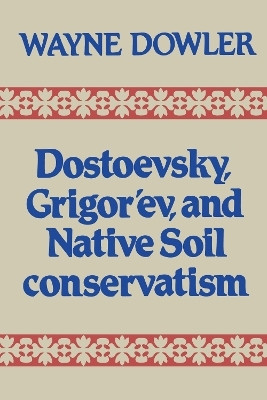Dostoevsky, Grigor'ev, and Native Soil Conservatism(English, Electronic book text, Dowler Wayne)
Quick Overview
Product Price Comparison
Native soil was a mid-nineteenth-century Russian reaction against materialism and positivism. It emphasized the need for people to live their lives and develop themselves naturally, so that class difference might be reconciled, the achievements of the West fused with the communalism and Christian fraternity preserved by the Russian peasant, and the Russian nation united in the pursuit of common moral ideals. The metaphor 'Russia and the West' summarized much of the intellectual and political debate of the period: how Russia should use its indigenous and its 'borrowed' cultural elements to solve the political, economic, and social problems of a difficult period. Professor Dowler presents a detailed study of Native Soil conservatism from about 1850 to 1880 - its various intellectual facets, its leading thinkers, and its growth and gradual disintegration. In this utopian movement, literary creativity, aesthetics, and education took on special significance for human spiritual and social development. Dowler therefore examines the writings of two of the most gifted exponents of Native Soil - F.M. Dostoevsky and A.A. Grigor'ev - and looks at their circle and the journals to which they contributed in an assessment of their responses to the challenges of the period of Emancipation.


